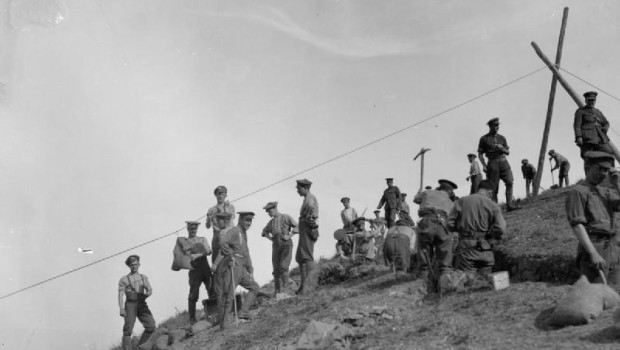Background, Aims, and Objectives
Background
The ’JISC WW1 Discovery programme’ aims to build an aggregation layer to WW1 digital content from a range of digital collections and find new and innovative ways of presenting this content for the benefit of education and research on WW1.
Phase 1 of the ‘JISC WW1 Discovery programme’ is researching key aspects of future World War One (WW1) digital content development in readiness for the centenary commemoration of the conflict from 2014 onwards. This research is intended to provide understanding in 3 key areas:
- WW1 content and collections available to education in analogue and digital form;
- Teaching, learning and research priorities and requirements of higher and further education in terms of the study of WW1 including a scoping of potential digital users and key stakeholder groups
- Synthesis of WW1 digital content availability and educational requirement(s), resulting in ‘priority’ recommendations of WW1 digital content development.
This research will provide an empirical assessment of learners’, teachers’ and researchers’ requirements to ensure that all phases of the programme remain focus on meeting user needs.
The technical vision for this work stems from the Resource Discovery Taskforce Vision: “UK students, teachers and researchers will have easy, flexible and ongoing access to WW1 content and service through a collaborative, aggregated and integrated resource discovery and delivery framework which is comprehensive, open and sustainable.”
The Discovery initiative is working to enable the Vision, and aims to apply its principles, aims and methodology in the delivery of the JISC WW1 programmes so that WW1 digital content resources are more discoverable both by people and machines. In doing so, data can be made to work harder, integrated and combined in new ways that can add value for researchers, teachers, and managers of information assets within libraries, archives and museums.
Working to enable this Vision, JISC and its partners are working to build a critical mass through opening up data, providing examples and communicating outcomes through the context of WW1, offering the opportunity to test, monitor and evaluate the methodology and Vision against a ‘real world’ theme. This work will help to achieve the follow Discovery aims and targets:
- Clearly position and define the benefits of Discovery to research and education at the local and national level
- Improve the discoverability of UK library, archives and museum content
- Drive a shift in ethos to ‘open’ in institutions, services and funding bodies
- Improve the quality and sustainability of new and existing resource discovery infrastructure
- Be understood, endorsed and promoted by key stakeholders within the library, archives, and museums sector and beyond
Aims and Objectives
The following is a plan outlines Phase 2 of the WW1 Discovery Programme which aims deliver on the technical vision of the overarching programme by building an aggregation API, and discovery layer for WW1 related content that will support researchers and teachers interested in the subject. The aim of this work is to produce an exemplar to illustrate the principles of the Discovery programme as well as a tool that will be useful to the education and research communities. The project will build on the Phase 1 activity undertaken by Kings College London project team, who are currently working to produce a synthesis of available content and identify the requirements of researchers and teachers working in this subject area. We will capture lessons learned throughout the process – including the challenges and opportunities around identifying appropriate content for a Discovery approach to aggregation, documenting and reflecting on the technical approaches taken to developing the API, and also our reflecting on our work with third party suppliers in creating innovative interfaces using the API.
The work will support the Discovery initiative by addressing the following targets:
Relevant targets:
- Progress embedding of the technical, licensing and metadata principles
- Drive innovation and sustainable, benefits-led reuse of LAM open metadata
- Establish open licenses for JISC library and archives service metadata and other key UK LAM aggregations
- Develop demonstration exemplars of what is possible, strengthening the business case for open data and also identifying issues for sustainability
- Open up and make discoverable important but hidden collections
- Persuade funding bodies and vendors to support the key principles
- Work with related JISC initiatives to explore how they can be integrated into the Discovery framework
Image: © Imperial War Museum (Q 31841)





